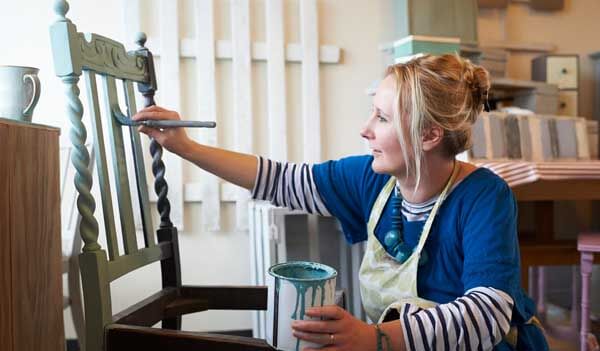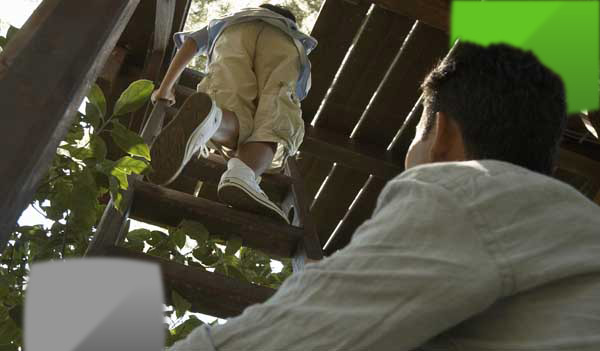What is a property chain?

Reading time 5 minutes
At a glance:
A property chain is where three or more sellers and buyers are linked together by a common goal – moving home.
In a chain, buying or selling a home will depend on at least one other person selling theirs.
This can make the process of buying or selling a home slower.
How does a property chain work?
A chain typically starts with a first-time buyer, who doesn’t need to sell a property to be in a position to buy.
This means they are ‘chain free’ and are less likely to slow a property chain down.
Those in the middle of the chain – the links – own a home that they want to sell. or They need to sell their property so they can buy a new one.
The end of the chain is usually someone selling but not looking to buy another property.
This could be someone buying a new build home, or they might be renting for a period before they buy a new home.
What does a property chain look like?
Here's what a typical property chain may look like:
First-time buyer – At the beginning of the chain, looking to buy and with no property to sell.
Upsizing homeowner – Selling a first home and buying a bigger property. They need to sell their home before buying a new one.
Retiree – The end of the chain. This person is selling their home to move in with family.
What makes a property chain slow down?
If you find yourself in a property chain, it could make moving home take longer. The more people in a chain, the slower it can move.
Delays can happen for lots of reasons. There might be a problem found in the survey, or an issue with paperwork. A property chain will always move at the speed of the slowest link.
Here are some of the most common reasons for delays:
A survey reveals issues with a property that causes a delay or a buyer to pull out.
One of the buyers or sellers decides they don’t want to proceed.
Someone in the chain may try to renegotiate the terms of their sale.
A buyer may struggle to be approved for the mortgage they need.
A seller may accept a higher from another buyer, putting the buyer back at square one.
What is a chain-free property?
A chain-free property is a home being sold by someone who doesn’t need to buy a new property after they sell. Chain-free properties are attractive for buyers looking to buy a home quickly.
A chain-free property might happen if:
The seller has a second home or has inherited a house, so doesn’t need to buy a new one.
The seller has decided to rent or move in with relatives.
First-time buyers are purchasing the property.
The property has been repossessed and is being sold by a company.
What happens if a property chain breaks down?
It’s a sad fact, but property chains can and do break down. Until buyers and seller exchange contracts, they are not legally bound to see the sale through to completion.
The breakdown of a chain can be expensive. You might have paid for conveyancing fees, valuations, surveys, mortgage fees and more – which are often non-refundable.
How you might be able to avoid a property chain
Here are some ways you may be able to avoid a property chain:
Sell your property first
Once you’ve sold, move in with friends or family or into rental accommodation. This could make your property more attractive to buyers. You will need to budget for rent until you property sells, however.
Buy a new-build property
A new build won’t have an onward chain as it’s sold by a company, not a person.
Buy a repossessed property
As they are owned by a bank or property company these are chain-free.
Look for chain-free/short-chain properties
Ask estate agents if there’s any on their books and don’t be shy about doing some detective work.
How you might be able to speed up a property chain
If you end up in a chain, there might be things you can do to speed it up. Remember, the chain is only as fast as the slowest link, so make sure that isn’t you!
Here are some things you can do:
Provide paperwork quickly – sign and return everything promptly.
Keep in regular contact with other members of the chain – this could help avoid confusion and build trust with other links in your chain.
Get a mortgage Decision in Principle – this is a statement from a lender saying they will lend you a certain amount before you make your purchase.
If you’re a first-time buyer, have your deposit in place.
The content on this page is for reference. It is not financial advice. For help with money issues, try MoneyHelper.


